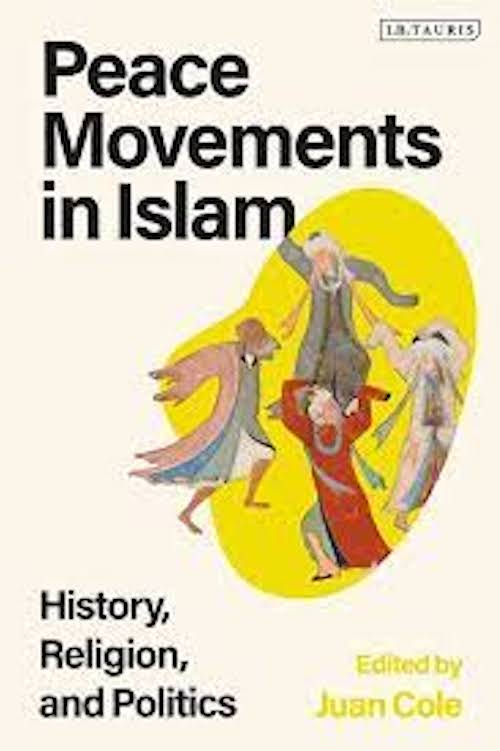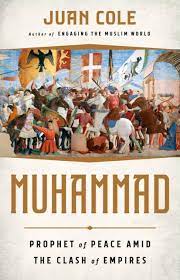Ann Arbor (Informed Comment) – The Swedish police permitted the burning of the Muslim scripture, the Qur’an (Koran) in front of the Iraqi embassy in Stockholm, on the grounds that previous attempts to stop such acts have been overruled by the courts on freedom of speech grounds.
Hate acts targeting minorities are not actually free speech, of course.*
The great exponent of mystical Islam, Sayyed Hossein Nasr, argued that if we want to understand the position of the Qur’an in Muslim societies, we should think of it as the way Christians venerate Christ. It is the very “Word of God,” which of course is what Christians call Jesus (John 1:1).
Nasr wrote, “What corresponds to Christ as the word of God in Christianity is not the Prophet Muhammad but the Koran in Islam.”
So burning the Qur’an is sort of like throwing a big wooden crucifix with the corpus of Christ on a bonfire.
Iraqis in several cities, led by Shiite cleric Muqtada al-Sadr, held demonstrations for the past two days against the desecration of scripture. On Thursday they had tried to storm the Swedish embassy in Baghdad.
Ironically, the man who burned the Qur’an in Sweden is himself Iraqi, and he had served alongside the Shiite militias in a Chaldean Christian Popular Mobilization Force, fighting ISIL, which targeted Iraqi Christians. A lot of Iraqi Christians are angry about how Muslim fundamentalists in Iraq treated them after the American invasion. Since they are Christian they seem to have been unfairly tagged as somehow related to the American occupiers, but this allegation was untrue. Many Kurds and Shiite Muslims were close to the Americans, though.
It is interesting to me that there are indications in the Qur’an itself of how believers should respond to ridicule and harassment. In the time of the Prophet Muhammad himself, the Qur’an says, pagans in the city of Mecca subjected the early believers to a great deal of humiliation.
I wrote about these peace verses in my edited book,

Peace Movements in Islam, edited by Juan Cole. London: IB Tauris, 2021. Click here. .
Enwrapped 73:10-12 speak of how the believers were to respond to hostile comments: “Be patient with what they say and take your leave of them graciously. Leave to me the affluent who impugn your integrity, giving them a short reprieve, for we possess shackles and a searing abyss . . .”
The notion of leaving vengeance to God can be compared to Paul’s Epistle to the Romans, 12:19, “Beloved, never avenge yourselves, but leave room for the wrath of God; for it is written, ‘Vengeance is mine, I will repay, says the Lord.’”
The Prophet was so far away from harboring any ill-will toward his opponents that in Ornaments 43:33-35, Muhammad appears to speak in his own voice with these sentiments: “If it would not have caused all people to observe a single communal path (an yakun ummatan wahida) we would have bestowed roofs of silver and staircases for their houses on those who reject the All-Merciful, and would have furnished their homes with fine doors and couches on which to recline, and gilded ornaments. But all that is merely for the enjoyment of the life of this world, whereas the hereafter is for the God-fearing.”
The Criterion 25:63 says, “The servants of the All-Merciful are those who walk humbly upon the earth — and when the unruly address them, they reply, “Peace!”
The word for “unruly” here literally means “ignorant,” but it was used in that era to refer to people who lacked self-control. They clearly were low-lifes, taunting the believers, who kept their dignity and replied by praying for peace and security for their tormentors.
The Table 5:45 in the Medina period paraphrases Deuteronomy 19:21. Arberry translates it this way: “And therein We prescribed for them: ‘A life for a life, an eye for an eye, a nose for a nose, an ear for an ear, a tooth for a tooth, and for wounds retaliation’; but whosoever forgoes it as a freewill offering (tasaddaqa bi), that shall be for him an expiation (kaffara). Whoso judges not according to what God has sent down – they are the evildoers.”
So, as in the Gospels it is urged that the faithful go beyond the principle of an eye for an eye to exercise forgivenes, so in the Qur’an believers are urged to forgo demanding this satisfaction for a wrong against them, and it is implied that exercising restraint in this regard will bring the blessings of divine forgiveness on the believer.
Distinguished 41:33-35 observes, “Whose discourse is more beautiful than one who calls others to God and performs good works and proclaims, ‘I am a monotheist? The good deed and the evil deed are not equal. Repel the latter with what is best and behold, it will be as though the one, with whom you have a mutual enmity, is a devoted patron. Yet to none is this granted save the patient (alladhina sabaru), and to none is it granted save the supremely fortunate.” This remarkable verse goes beyond counseling gracious withdrawal from and forgiveness of foes to urging doing good toward them and returning their evil deeds with good ones, which over time has the prospect of winning them over and making them patrons rather than enemies.
So that’s it. That’s how the Qur’an advises dealing with unruly and hostile harassers. Return good for evil. Win them over. Wish peace on them. If the harassment becomes too much, withdraw graciously.
It might be objected that there are verses in the Qur’an authorizing violence. There are, but they are clearly about permission for self-defense when being violently attacked by marauding enemy warriors. They aren’t talking about how you would behave in peacetime and in civil society. Christian thinkers also made a distinction between war-time ethics and peace-time ones.
The Christian monk Athanasios of Alexandria (d. 373) wrote, “For even in the case of the other actions in life we will find that there are differences based upon the circumstances in which they are done. For example, it is not permitted to commit murder, but in wars it is both lawful and praiseworthy to destroy one’s enemies, so much so that those who displayed valor in war are deemed worthy of the highest honors, and monuments to them are erected to proclaim their achievements. And so, the same action is not permitted in certain circumstance and at certain times, but is allowed and excused in different circumstances and at the right time.”
I also discussed the historical context for these verses in my biography of the Prophet Muhammad:
—–
*An earlier version of this posting linked to an article alleging that Sweden had banned the burning of the Hebrew Bible. Apparently the person threatening to do so actually withdrew the threat before the police could decide on the issue.



 © 2026 All Rights Reserved
© 2026 All Rights Reserved